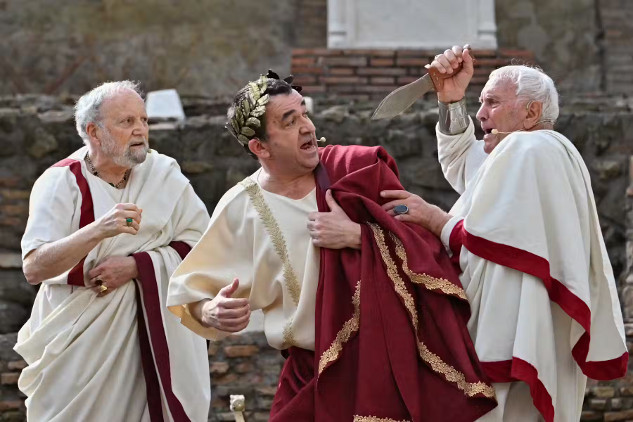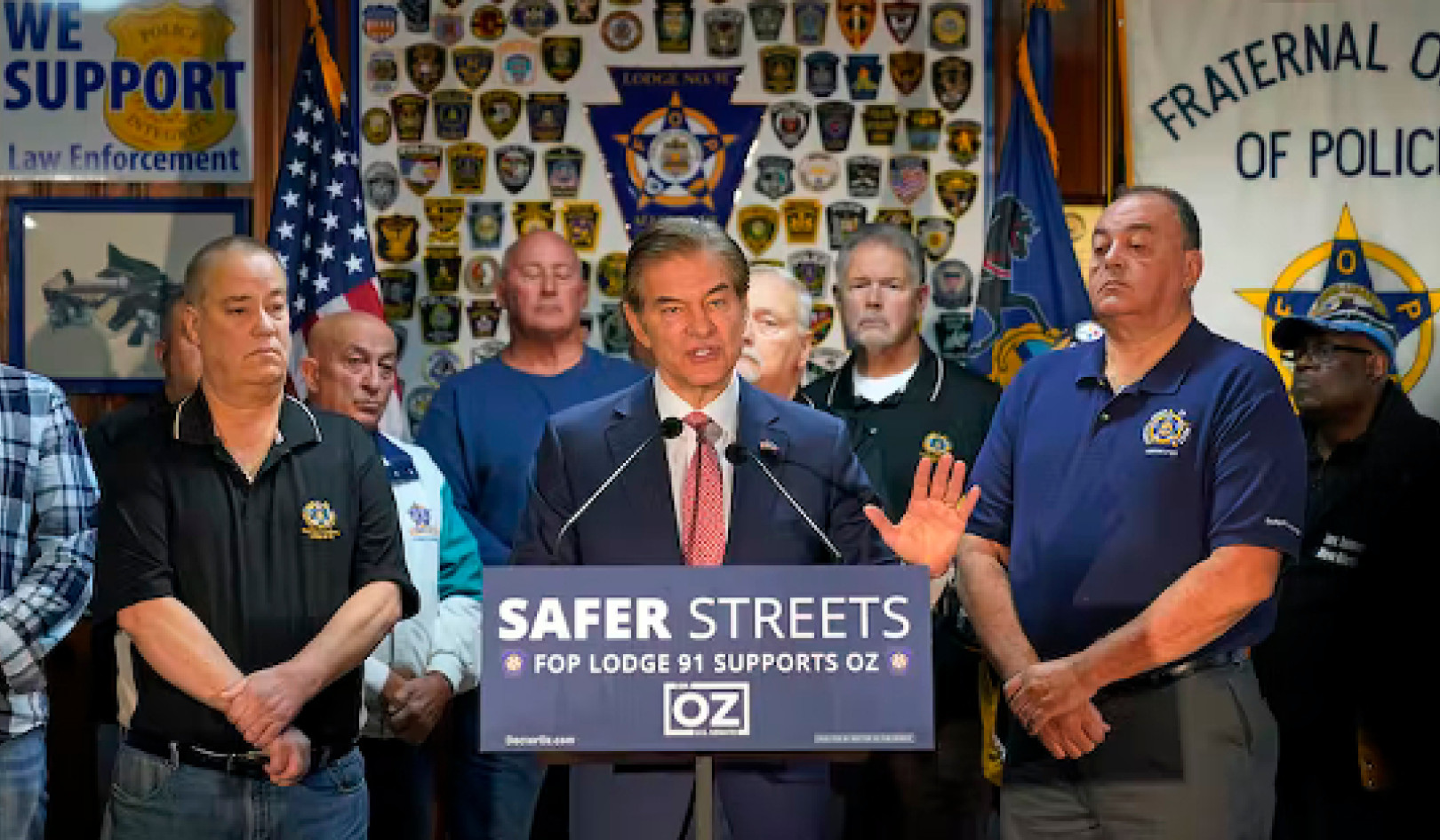
Actors recreate the assassination of Julius Caesar, which came too late to save the Roman republic from collapse into authoritarian rule. Andreas Solaro/AFP via Getty Images
That sort of activity has been called “Machiavellian,” after Renaissance writer Niccolò Machiavelli, who lived from 1469 to 1527. He wrote a notorious little treatise called “The Prince,” in which he advises sole rulers – his phrase for authoritarians or dictators – as well as those who aspire to sole rule to use force and fraud to gain and maintain power.
But scholars of Machiavelli like me know there is much more to his analysis. His 16th-century writings discuss not only princely rule but also republican governments, in which citizens select leaders directly or indirectly for specified terms. He instructs republican citizens and leaders, including those of the United States, to recognize how vulnerable the governments they cherish are and to be vigilant against the threats of tyranny. Machiavelli’s advice is as relevant now as it was then.
Machiavelli’s republican experience
Machiavelli knew from experience and his extensive reading that there was a long history of nations with republican governments falling victim to ambitious individuals who sought to subvert their nations’ practices and institutions so they could rule alone and unchecked, with all others serving at their behest and on their authority.
For example, he was from the city-state of Florence in what is now Italy. Florence had had a republican tradition for centuries, but about 30 years before Machiavelli’s birth, banker and politician Cosimo de’ Medici had subverted that system. Cosimo had used his family’s wealth to propel himself to political power by exerting influence over officeholders so that he was the ultimate decision-maker.
Cosimo’s descendants inherited his political power. They briefly lost their grip on power just long enough for Machiavelli to participate for about a decade as an official and diplomat in a restored republic. Machiavelli was in office when the republic collapsed with the return of the Medici family to power.
Removed from office, Machiavelli wrote “The Prince.” He prefaced it with a dedicatory letter to the young member of the Medici whom the family had designated as the new ruler of Florence. Commentators have long disagreed about what Machiavelli sought by so obviously pandering to an autocratic ruler.
The ‘Discourses,’ Machiavelli’s republican writing
That puzzle is all the more perplexing because elsewhere Machiavelli expresses his commitment to republican government. He wrote another book, less well known and much less pithy than “The Prince,” entitled “Discourses on Livy.” In the “Discourses,” Machiavelli uses the work of the ancient Roman historian Livy to examine how the Roman republic was overthrown by a single leader.
At its founding, Rome was a kingship, but when subsequent kings became tyrannical, the Roman people overthrew the monarchy and established a republic, which had a remarkable history and lasted almost 500 years.
The Roman republic collapsed in 44 BCE when Julius Caesar declared himself dictator for life. Machiavelli wrote that Julius Caesar was the first tyrant in Rome, with the result that Rome was never again free.
Julius’ immediate successor Octavius, who assumed the name Caesar Augustus, ruled as the first of a long line of emperors.
Lessons from the demise of the Roman republic
The key lesson of Machiavelli’s examination of Roman history in the “Discourses” is this: A republic is fragile. It requires constant vigilance on the part of both the citizens and their leaders.
That vigilance is difficult to maintain, however, because over generations, citizens and leaders alike become complacent to a key internal threat that haunts this form of government. Specifically, they fail to grasp early enough the anti-republican designs of exceptionally ambitious citizens among them who harbor the desire to rule alone.
Machiavelli provides instructive examples of how Rome failed to protect its republican practices and laws against such a threat. When the republic was young, Rome allowed candidates to nominate themselves for high offices. This practice worked well because only worthy candidates put themselves forward. Later, however, the practice of self-nomination allowed into office those who wanted to promote their own popularity rather than respond to the needs of their country.
Machiavelli said that leaders and citizens devoted to the republic should have closed off this easy route to power to such candidates. But Rome failed to act. Because of its complacency, Caesar was able to build on the popularity that his predecessors had amassed and to transform Rome into a tyranny.
The point of no return
If republican citizens and leaders fail to be vigilant, they will eventually be confronted with a leader who has accumulated an extremely powerful and threatening following. At that point, Machiavelli says, it will be too late to save the republic.
Machiavelli uses the examples of Caesar’s assassination in Rome and Cosimo’s exile from Florence to underscore this lesson. In each case, the supporters of their respective republic, finally perceiving the danger of tyranny, initiated an attack on the people’s idol. In each case, that effort led not to a restoration of republican freedom but rather to its elimination.
In Rome, Augustus used the public’s sympathy and devotion for the martyred Caesar to seal the republic’s demise. In Florence, Cosimo himself was welcomed back from exile to become Florence’s leading man.
The fate of the American republic
For Americans, the question is whether, as a result of public complacency, the republic will be lost. Will the American republic fall to the same perils that Machiavelli identified in ancient Rome and Renaissance Florence?
Perhaps an opportunity exists to breathe new life into the nation’s republican practices and institutions. Perhaps there is still time to reject through elections those who seek office only to enhance their own power.
Or perhaps it is so late that even that approach will not work. Then, Americans would be left to mourn the demise of their republic and to affirm Machiavelli’s counsel that republics fail through complacency. Such an outcome for one of history’s most exemplary republics would stand as a wretched testament to Machiavelli’s political insight.![]()
Vickie B. Sullivan, Professor of Political Science, Tufts University
This article is republished from The Conversation under a Creative Commons license. Read the original article.

Related Books:
On Tyranny: Twenty Lessons from the Twentieth Century
by Timothy Snyder
This book offers lessons from history for preserving and defending democracy, including the importance of institutions, the role of individual citizens, and the dangers of authoritarianism.
Click for more info or to order
Our Time Is Now: Power, Purpose, and the Fight for a Fair America
by Stacey Abrams
The author, a politician and activist, shares her vision for a more inclusive and just democracy and offers practical strategies for political engagement and voter mobilization.
Click for more info or to order
How Democracies Die
by Steven Levitsky and Daniel Ziblatt
This book examines the warning signs and causes of democratic breakdown, drawing on case studies from around the world to offer insights into how to safeguard democracy.
Click for more info or to order
The People, No: A Brief History of Anti-Populism
by Thomas Frank
The author offers a history of populist movements in the United States and critiques the "anti-populist" ideology that he argues has stifled democratic reform and progress.
Click for more info or to order
Democracy in One Book or Less: How It Works, Why It Doesn't, and Why Fixing It Is Easier Than You Think
by David Litt
This book offers an overview of democracy, including its strengths and weaknesses, and proposes reforms to make the system more responsive and accountable.























